Billy Boston walks into the lobby of a hotel near Hyde Park Corner, wearing a smart blue jacket and the broad smile that harvested more than a million views when television cameras picked him out in the crowd at Wigan Warriors’ Super League match with St Helens six weeks ago.
Fans packed into the Brick Community Stadium that day rose to acclaim the man who is a legend in the town and in the sport for what he achieved in the game — he scored 478 tries in 487 matches for Wigan — and the humble, dignified way in which he achieved it.
The man who walks into the London hotel with his wife, Joan, and his three surviving children is 90 years old, but still carries himself like a king of old.
He may be growing a little unfirm, but there is something regal about him that he will never lose.
It seems fitting then that today, a stone’s throw from this hotel at Buckingham Palace, Boston will be knighted by King Charles and smash a barrier that has blighted rugby league for the 130 years it has existed.
In all those years, not a single player of the sport has been deemed worthy of being made a knight of the realm.
By comparison, rugby union has 20 knighthoods, yachting has 12, motor racing has eight, horse racing has eight and sheep shearing has one.
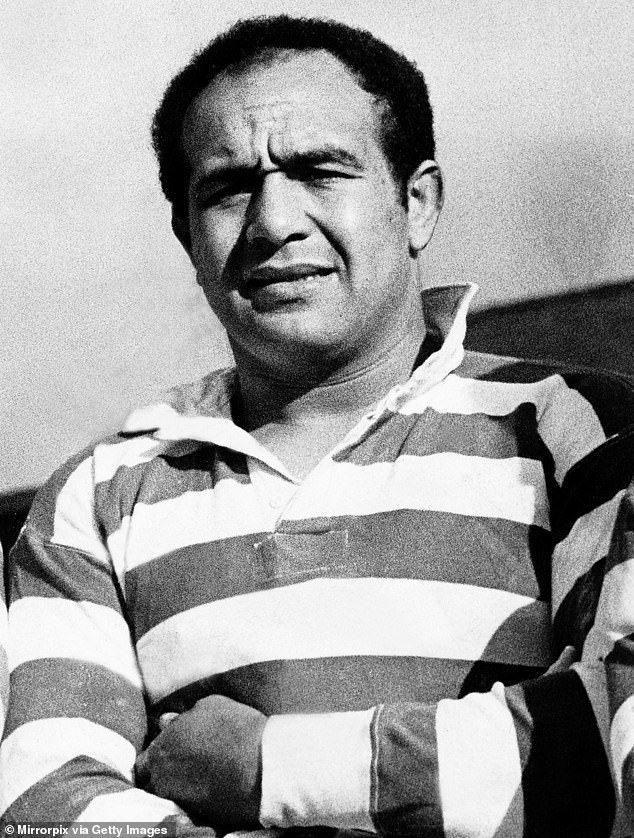
Billy Boston, pictured in 1963, will be the first rugby league player to be knighted
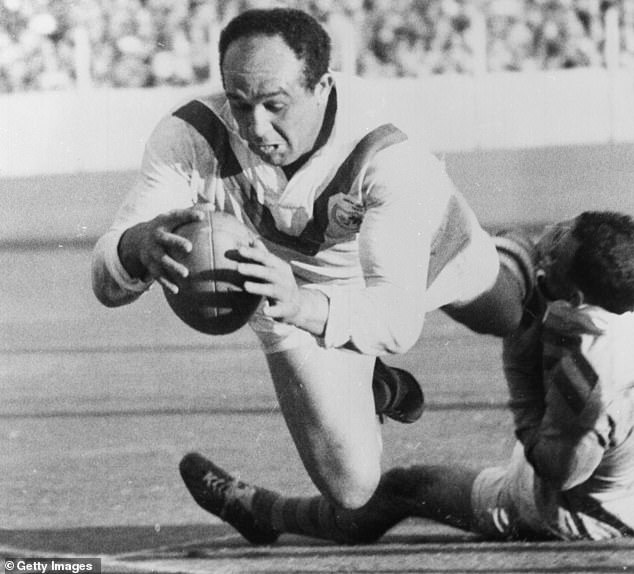
The prolific try scorer was a superstar at Wigan and was Great Britain’s first black player
Rugby league was on zero until now, until Billy Boston changed it all. He already has three statues in his honour — in Cardiff, where he was born, at Wembley, where he played in six Challenge Cup finals, and in Wigan — and now there is this. It feels like his last gift to a sport to which he has given so much.
He was accompanied to London by Warriors owner Mike Danson and another club legend in Kris Radlinski, who is now Wigan’s chief executive, both of whom are keenly aware of the wider significance of what will unfold at the Palace.
‘We’ve just never had that breakthrough moment before,’ Radlinski says. ‘It’s funny really because we’re always looking at ways to take the game forward and we need superstars.
‘One of the problems is we promote humility and create these humble guys, but we actually need them to be superstars.
‘One thing about rugby league in our town and many northern teams is everybody lives in the town and access is unbelievable. So it’s your biggest strength, but also your biggest weakness.’
The lack of recognition for rugby league’s heroes is tied up in wider issues. Danson points out that only a small percentage of knighthoods are earned by people from the north. If you are northern and working class, that percentage shrinks even more. Boston has smashed through that barrier, as well.
And so he sits in the lobby of this smart hotel, jokes with Radlinski and talks about the life he led when he was growing up in the Tiger Bay area of Cardiff in the 1940s. In his street, there was a chip shop on one corner and a mission on the other. Joe Erskine, who would go on to fight Henry Cooper five times and become Commonwealth heavyweight champion, was a neighbour.
‘He could give me a good hiding,’ Billy says. Once he started playing for Cardiff in rugby union, though, it was usually him dishing out the punishment. His progress was blocked by claims of racism and so Boston moved north to Wigan, his home ever since.
He laughs as he reminisces about being paid a £7 appearance fee for playing in the Challenge Cup final, but what he achieved in the sport has made him immeasurably rich in other ways, treasured by every fan of rugby league and now to be remembered as the man who broke its last barrier.
If there is any sadness about his big day with the King, it is that his daughters, Lisa and Angela, who have passed away, will not be there to share it with him and Joan and his children Stephen, Christine and Karen. This moment has been a long time coming.
‘You’re a gentleman,’ Billy says as I leave him and his family to their dinner. The honour, of course, was all mine.
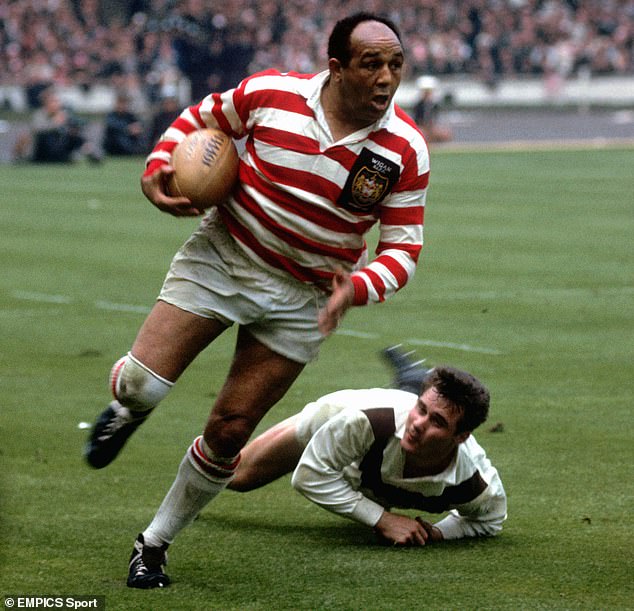
Boston played in six Challenge Cup finals during his remarkable playing career
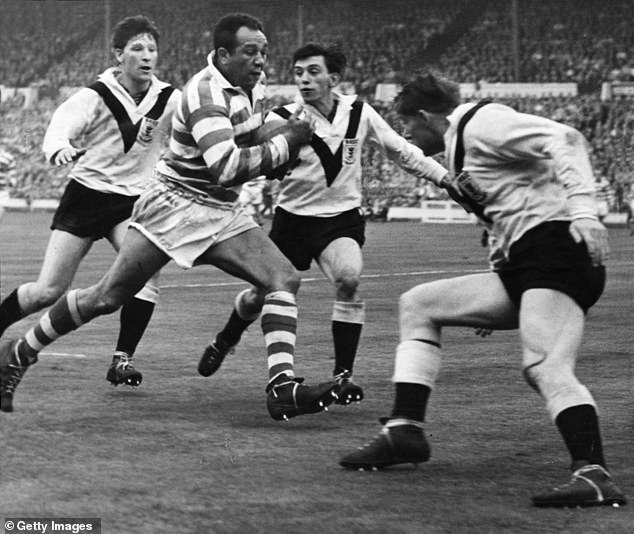
Boston spent his life breaking down barriers and his knighthood is another one
Player welfare hypocrisy incoming
Next season, when it happens — and it will happen — and a manager at one of the football clubs that has flogged its players around the world on post-season and pre-season tours, or played them in the glorified friendly tournament that is the Club World Cup, moans about player welfare, I request permission to laugh out loud.
England are reversing
I know that this particular battle ended a long time ago, but the truth is that England have gone backwards since Gareth Southgate left. Southgate over-achieved with England for so long that it camouflaged just how ordinary some of our players really are. Once freed from his yoke, the argument went, England would be free to enter a new era of expression and entertainment. I’m still waiting.
Sinner’s sins quickly forgotten
I’m sorry, but I can’t join in the orgy of celebration about how Sunday’s French Open men’s singles final was a match for the ages.
Sure, I can appreciate that, in other circumstances, it would have been a wonderful contest.
And I am delighted it was won by Carlos Alcaraz, a magnificent player who is worthy to carry the torch left by Roger Federer, Rafa Nadal, Andy Murray and the fading Novak Djokovic.
But the reality is that Jannik Sinner, the second of the men’s finalists, should not have been playing at Roland Garros. After twice testing positive for banned anabolic steroid clostebol last year, he was finally sanctioned in February and let off with a paltry three-month ban that conveniently ensured he did not miss a single Grand Slam.
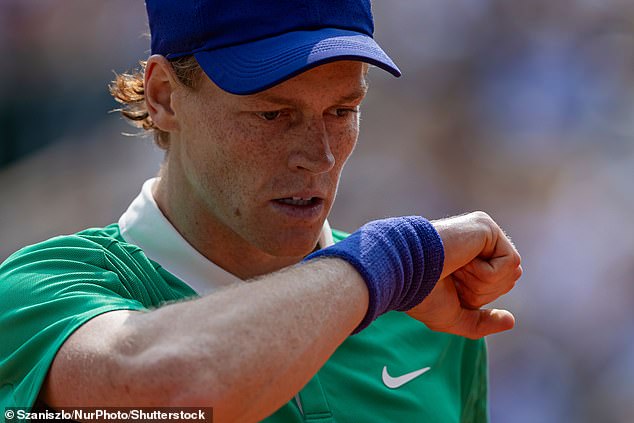
Yannik Sinner twice tested positive for banned anabolic steroid clostebol last year
It astonishes me, frankly, how quickly many people seem to have forgotten that and glossed it over.
I presume you have read Sinner’s convoluted excuse about how the drug found its way into his system via a cut on the hand of his masseur. It’s not quite up there with Tyson Fury testing positive for nandrolone and blaming it on eating wild boar testicles, but let’s just say it stretches credibility.
‘If I did that,’ Serena Williams said as the ban was announced, ‘I would have gotten 20 years. Let’s be honest. I would have gotten Grand Slams taken away from me.’ And she was right.
The truth is Sinner should have been banned for two years. But he is one of the biggest draws in a sport trying to come to terms with the loss of its greatest generation, so he wasn’t. It’s as cynical and dispiriting as that.